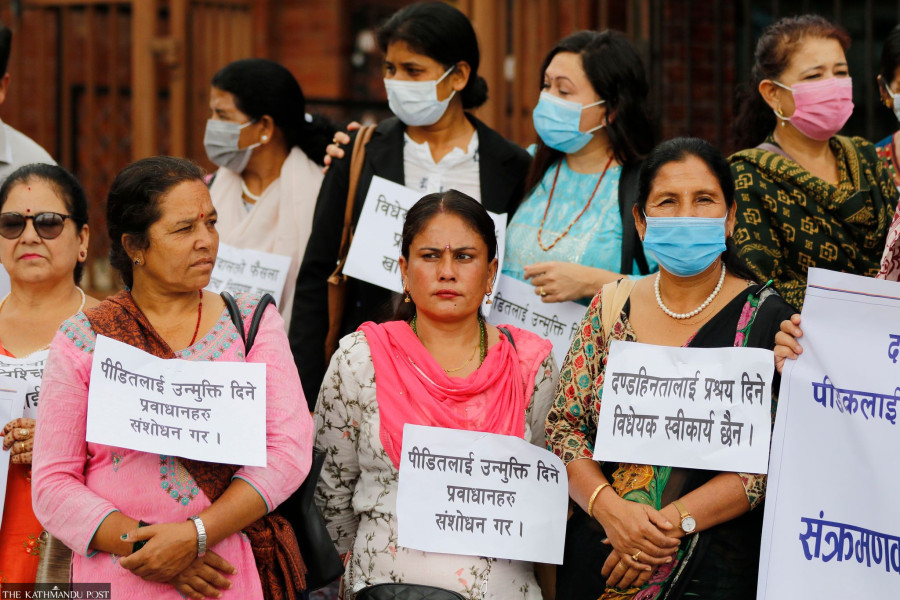Editorial
Unheeded, unhealed
It would be dangerous to believe that just because some conflict victims are divided, transitional justice would eventually be forgotten.
One of the most important clauses of the Comprehensive Peace Agreement, signed in 2007 after the Maoist insurgents came to mainstream politics, was the setting up of mechanisms to investigate and solve conflict-era cases. These mechanisms would lead the transitional justice process and provide a closure to the atrocities committed by either of the conflicting parties during the insurgency. Apart from setting up two commissions—the Truth and Reconciliation Commission and the Commision for the Investigation of Enforced Disappeared Persons—there has been little progress on that front. The transitional justice process has remained an unhealed wound for over a decade and a half.
The process has lingered for so long that even the groups of victims fighting for justice have started to show signs of wear and tear. What used to be muted disagreements have started to come out in the public as major differences, with one group taking a position entirely different from that of another. The groups named Conflict Victims Common Platform and Conflict Victims National Network, led by Suman Adhikari and Gopal Shah, among others, have been demanding that the government endorse the bill to amend the Enforced Disappearances Enquiry, Truth and Reconciliation Act before taking any decisions on transitional justice. Meanwhile, another group, named National Campaign for the Truth, Justice, Reparation, Memorialisation and Social Justice, led by Bhagiram Chaudhary, recently met Prime Minister Pushpa Kamal Dahal demanding that the government start appointing members to the twin justice commissions immediately.
With the justice process making no progress, some groups have even been hijacked by interest groups, including political parties. This has resulted in division and conflict, hampering their justice efforts. But more than the victim groups, it is the main parties to conflict that are to blame for the current imbroglio. The state agencies and the Maoist party that fought against each other benefit through a collective amnesia, as they both have blood in their hands. Meanwhile, two other major political parties, the Nepali Congress, and the CPN-UML, have changed their stances on transitional justice according to whether they are in coalition with the Maoist Centre or not. The Congress was in coalition with the Maoist Centre when then law minister, Gobinda Bandi, presented a controversial proposal to not consider murder as a gross violation of human rights. As a party that led the government during some years of the insurgency, it seems to be as interested in adopting an attitude of amnesia about the insurgency.
The UML’s attitude to transitional justice when it is in opposition is to push the Maoists to the corner, focusing on the rights of victims. However, now that it is in a coalition government with the Maoists, it faces a moral dilemma. This tendency of our major political actors to do what is convenient for them has greatly hampered the transitional justice process. This in turn has frustrated the quest for justice of thousands of victims. But it would be dangerous to believe that just because some conflict victims are divided, the issue of transitional justice will eventually be forgotten. It won’t so long as the victims don’t get justice through a process centred on their rights and concerns.




 18.12°C Kathmandu
18.12°C Kathmandu














